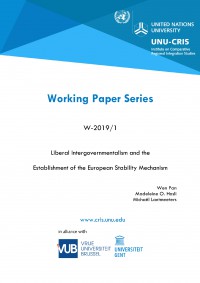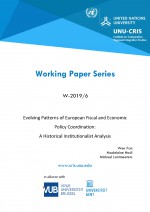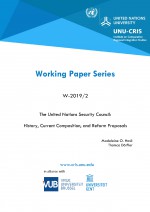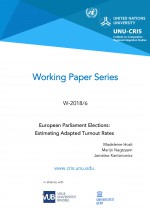Liberal Intergovernmentalism and the Establishment of the European Stability Mechanism

The European Union (EU) was both created by and developed through a combination of Treaties signed by participating nation states and supranational activity. This paper aims to use Liberal Intergovernmentalism (LI), an influential European integration theory to account for EU milestone developments and policy outcomes forged by intergovernmental negotiations among EU member states. The establishment of the European Stability Mechanism (ESM) — a permanent rescue mechanism purposely adopted to counter the Eurozone sovereign debt crisis — represents a typical case of crisis induced deepening of EU integration. Utilizing the research methods of congruence testing and process-tracing, this paper examines Liberal Intergovernmentalism’s (LI) analytical and predictive power in explaining the creation of the ESM. The research results show that the three-phase LI model works well in accounting for the highly state-driven formation of the ESM. Based on the case study of the ESM, however and partially drawing on alternative theoretical approaches, new factors and causal mechanisms are proposed as additions to the LI model.



